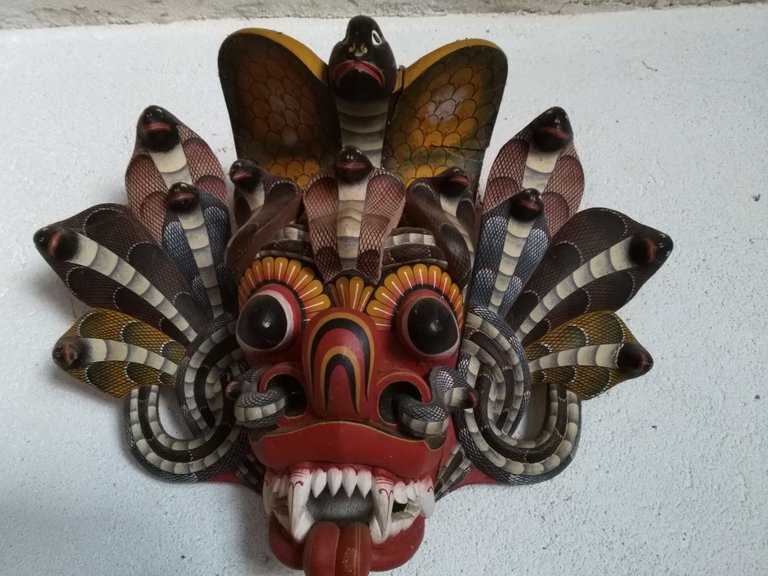Lahiru@creation

The "Devil Dances" are an attempt to respond to the common belief that certain ailments are caused by unseen hands and that they should be chased away for the patient to get cured. If an individual or a family is not doing well, the village-folk believe that it's because that person or the family is being harassed by unseen hands. A 'tovil' ceremony is the answer.
The 'tovil' can be a simple ritualistic ceremony at home restricted to family and immediate neighbours or involving the whole village like the 'gam-maduva' or the 'devol-maduva' which is closely linked to the worship of gods. Masked dancers take part in at least two of the well-known 'tovil' ceremonies referred to as the 'Maha Sohon Samayama' and the 'Gara Yakuma'. The mention of 'Maha Sohona' frightens the people since he is believed to be the demon of the graveyards.
The performer disguises himself as a bear and wears a mask and a dress to resemble one. Often the 'tovil' involves the 'sanni' dances where all the dancers wear masks. The 'daha ata sanniya' refers to eighteen ailments with a demon being responsible for each one of them.
Dancers wearing masks depicting different characters take part in processions while at certain ceremonies. Of later origin are the masks worn by children and teenagers at street performances during Vesak. Popularly known as 'olu bakko' for the simple reason that oversize masks are worn, these performances keep the younger folk, in particular, entertained.
The simple version of the devil dance ritual usually starts in the morning with the building of the stage, decorations and preparation of the costumes. The performers build an intricate stage before which the dancing commences. The stage consists of a wall made of freshly cut natural materials such as coconut palm tree and banana tree trunks. Depending on the region and the available materials the stage may also be coated with clay mud. The dances are accompanied by drummers which also herald the begin of the ritual. The distinctive sound ensures all neighbours turn up to take part. The full ritual usually lasts until the morning, with the dancers consuming betel-nut juice and drinking coke to stay awake. Dances can however also go on for multiple days.
Hi! I am a robot. I just upvoted you! I found similar content that readers might be interested in:
https://en.wikipedia.org/wiki/Dances_of_Sri_Lanka
ok......tnx........